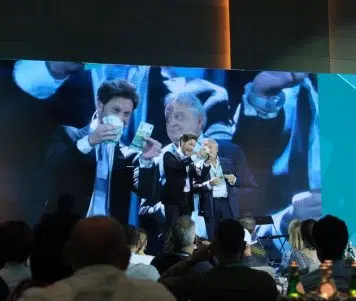
Is It Possible to Use Suggestion to Change Public Opinion?
In a country like Israel, where politics are always a popular subject in public discourse, various media outlets often discuss ways in which certain bodies influence not only the public agenda, but public opinion itself regarding various issues. This is related to an element called suggestion, which is also part of the mode of entertainment known as mentalism and sensory art.
If a sensory artist, such as Lior Suchard for example, can influence participants’ thoughts, actions, and behavior via suggestion, then a bigger question arises – is it possible to use suggestion to influence or even change the position of groups in society regarding certain issues?
What is suggestion?
Suggestion is a process that is familiar in the world of psychology and behavioral sciences. By transmitting verbal messages and using methods of communication, it is possible to influence the opinions or thoughts of other people, and even their positions on issues, their basic beliefs and emotions.
Suggestion uses various verbal and nonverbal messages, while the overarching goal is to influence the listener’s subconscious, with an emphasis on opinions, beliefs, perceptions, emotions, and positions.
The term itself comes from the concept of making a suggestion, because a person who applies this technique suggests to the listeners a different approach or outlook on a specific topic, using non-direct means and clever, targeted communicative messages.
How does a sensory artist use suggestion?
Simple examples of suggestion are, for example, the cognitive exercise in which you are asked not to think about a white bear, when it is clear that from this moment onward, you can’t help but picturing a white bear in your head. Or when you are given two choices of drinks, and your brain is directed toward only considering those two possibilities. Another example is when a price or numerical value is introduced as an element of a conversation, so that the brain fixes itself on that price or number. In this case, any lower number will seem like a significant discount to us.
A sensory artist takes these simple and familiar applications of the psychological process of suggestion and applies them in a more complex and deeper manner in order to create the surprising entertainment effect and cause the participants to think the way he wants them to think. For example, certain words are used to direct the participant’s subconscious in a show that focuses on a specific thought or choice. Visual elements and nonverbal messages are also used to strengthen and make the suggestion more precise.
Influencing the public via suggestion – is it possible?
The reality regarding influencing public opinion via suggestion is of course more complex than a sensory art show. If it was so simple and accessible, people and entities would change our opinions of things all the time. So it is obviously not that easy, but at the same time, it is not totally impossible.
It is easier to influence a single person using suggestion – if they are not the type of person who are “immune” to this type of manipulation – but using clever, good practices, it is also possible to influence the positions of a group of people, with a certain degree of success.
For example, constant repetition of messages and “stories” increases the chance that within the broader public perspective, those messages will be perceived as truth or as part of the truth – even if they are not so. For example, the use of verbal messages accompanied by appropriate visual messages can definitely cause a group to determine its opinion in a certain direction or to think that something actually happened as described and not in a different manner. Therefore, these techniques are in fact used by political and media entities, in an attempt to influence public opinion and positions. This can be seen on all types of media outlets, from television and the news to social media.
Want to experience the power of suggestion in a surprising, captivating and truly entertaining manner? Curious to see how Lior Suchard directs the thoughts and perceptions of participants from the audience and “reads” their thoughts? Order tickets to a show today!








